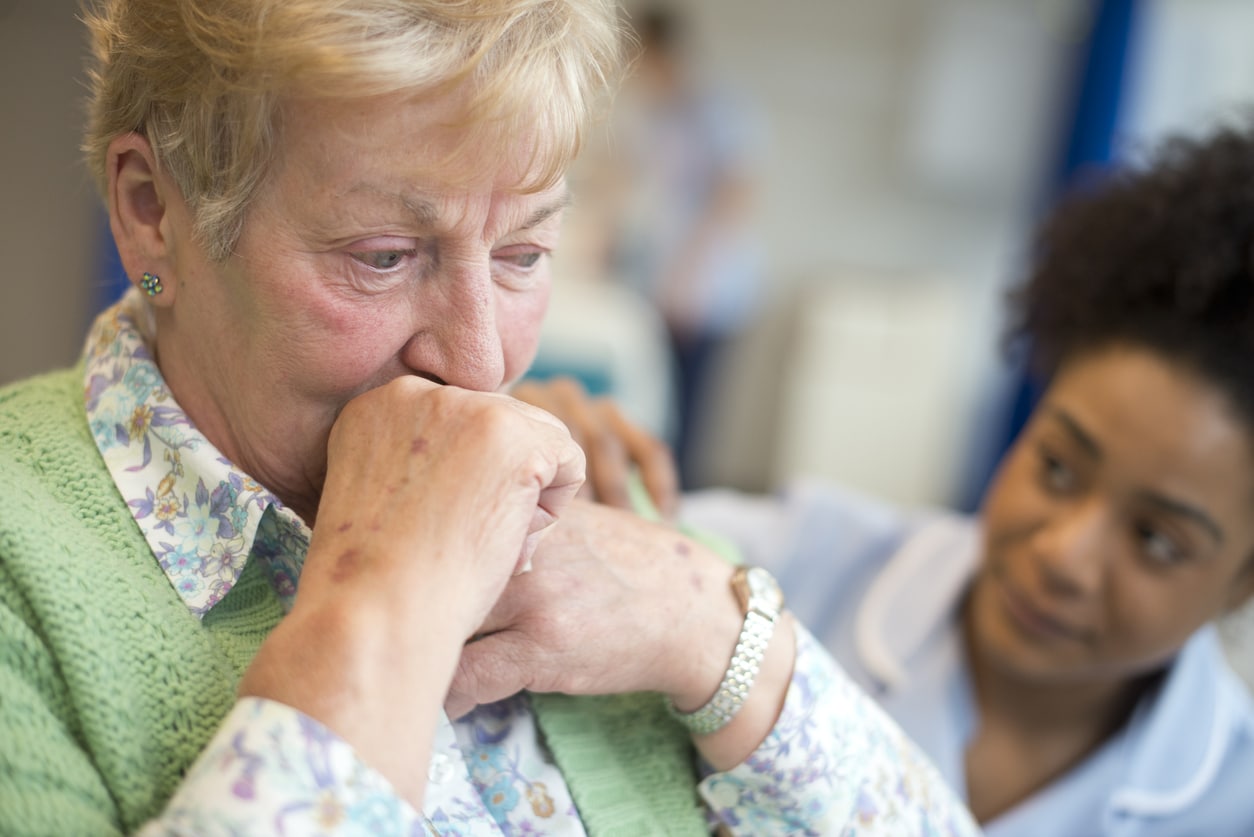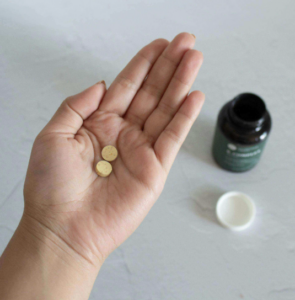Fear of death is normal to an extent, but it doesn’t have to dominate your life. Worrying about death is something I struggled with when my father was diagnosed with terminal lung cancer. It was even worse right after he passed. However, the six months following his death included lots of other life turmoil that really brought things into perspective for me. I learned to accept death as being inevitable, eventually. There’s a peace within me now in knowing we can’t control how we go, but we can make the most of life while we’re here, and I choose to focus on that instead. It is a conscious choice, no doubt. And it still takes effort. If you, too, are struggling with an anxiety or intense fear around death, getting to a point of peace and comfort may seem impossible, but it is attainable with some personal reflection on the causes and symptoms of your fear.
Fear of Death
There’s an actual term for those who worry about death or the process of dying. It’s called thanatophobia. Others call it “death anxiety,” which is classified as an anxiety disorder. It’s an extreme fear of either your own death or the death of someone you care about. This is not the same as necrophobia, which is a fear of dead things. A recent study found that 20% of us are afraid or very afraid of dying. It’s natural to worry about death or dying, but thanatophobia is more extreme. This goes beyond the fear of the unknown. With thanatophobia, your fear of death impacts day-to-day life. It could cause panic attacks or prevent you from being able to focus on daily tasks.
Causes
Typically, the fear starts with a traumatic experience with death, whether it’s losing a loved one or watching someone else suffer a painful death. It can be connected to other phobias, like a fear of flying, confined spaces, or water, among other things. Symptoms can include feelings of panic, much like an anxiety attack, with fear, dread, or depression. You may start to feel obsessed with your health, worrying that you may have a terminal illness, researching medical diseases non-stop (a condition of its own, called cyberchondria). When triggered, you may start to feel chills or lightheadedness, heart palpitations, and excessive sweating.
Dry mouth and a racing heart can also signify a reaction. They may come on when watching a movie or reading a book that involves a death. Your doctor can diagnose you as phobic if your symptoms last six months or longer. In that case, they’ll confirm it interferes with day-to-day life and diagnose therapy to help. That may include medications and/or psychotherapy.
Who Does It Impact?
Thanatophobia impacts both children and adults. It tends to be more prevalent in people who are in poor health, facing a serious illness, or have loved ones dealing with those issues. It also seems more common in people who lack religious beliefs or have low self-esteem. Thanatophobia is also more prevalent if you have other phobias, battle depression, or are unsatisfied with your life.
It’s more common for young adults to fear actual death, while older people fear the process of dying. This shift in mindset is often triggered in middle age. That may be because this is when many people start to experience more death, whether it’s parents, siblings, or friends. After that, the fear actually decreases with age.
How Can You Prevent This Fear?
Although it’s not possible to prevent death anxiety altogether, you can lessen its impact by avoiding caffeine, drugs, or alcohol. It is especially important to create a network of people you can lean on.
There are also coping techniques you can learn. Practice deep breathing. Exercise regularly, practice mindfulness, and get enough sleep. You should also eat a healthy diet, make time for things that bring you joy, and talk with close friends and family about your fears. Taking care of yourself and spending time meaningfully is one of the best ways you can eradicate the fear of death.
Definitely bring it up with your physician to evaluate symptoms, and address it with a therapist, too.
What Therapy Might Help?
There are several options for therapy that may make a difference. There’s cognitive behavioral therapy, or CBT, which essentially changes the way you think about death. CBT addresses beliefs and feelings around why you feel the way you do. It also offers techniques for better ways to manage your thoughts and reactions to death. Another tactic is exposure therapy, which gradually introduces you little by little to the things and places that typically spark your anxiety about death. Activities like writing a will and reading obituaries can be a good start.
Your doctor may also recommend anti-anxiety drugs if you’ll be in a triggering setting, such as a funeral or visiting someone in the hospital who’s critically ill. Those medications include Zoloft, Lexapro, and Prozac, among others.
Accepting the Reality of Death
Knowing we all die one day, and you can’t do much about stopping it, makes all the difference. Accepting it is the first step in making peace with it. No, we don’t know how, and we certainly hope it won’t be painful, but worrying about death is a waste of one of the good days you do get to live! Focus on the things you can control, like finding ways to improve your life. If you really can’t avoid the treadmill of death thoughts, allow yourself a certain amount of time to feel the feeling. Then shut it down. Seriously. Set an alarm for what you need, whether 60 seconds or ten minutes and then move on with your day. Just don’t do it before bedtime when it may seep into your dreams. Set a similar alarm for thinking about the things that make you smile. You definitely don’t have to embrace the idea of death. You just have to accept and acknowledge it. Ultimately, the best advice is to live each day like it may be your last. It’ll help you put your priorities in the places that matter most to you and keep the focus on something other than worry.
Read More:
3 Steps to Help Cope When Your Mother Passes Away










